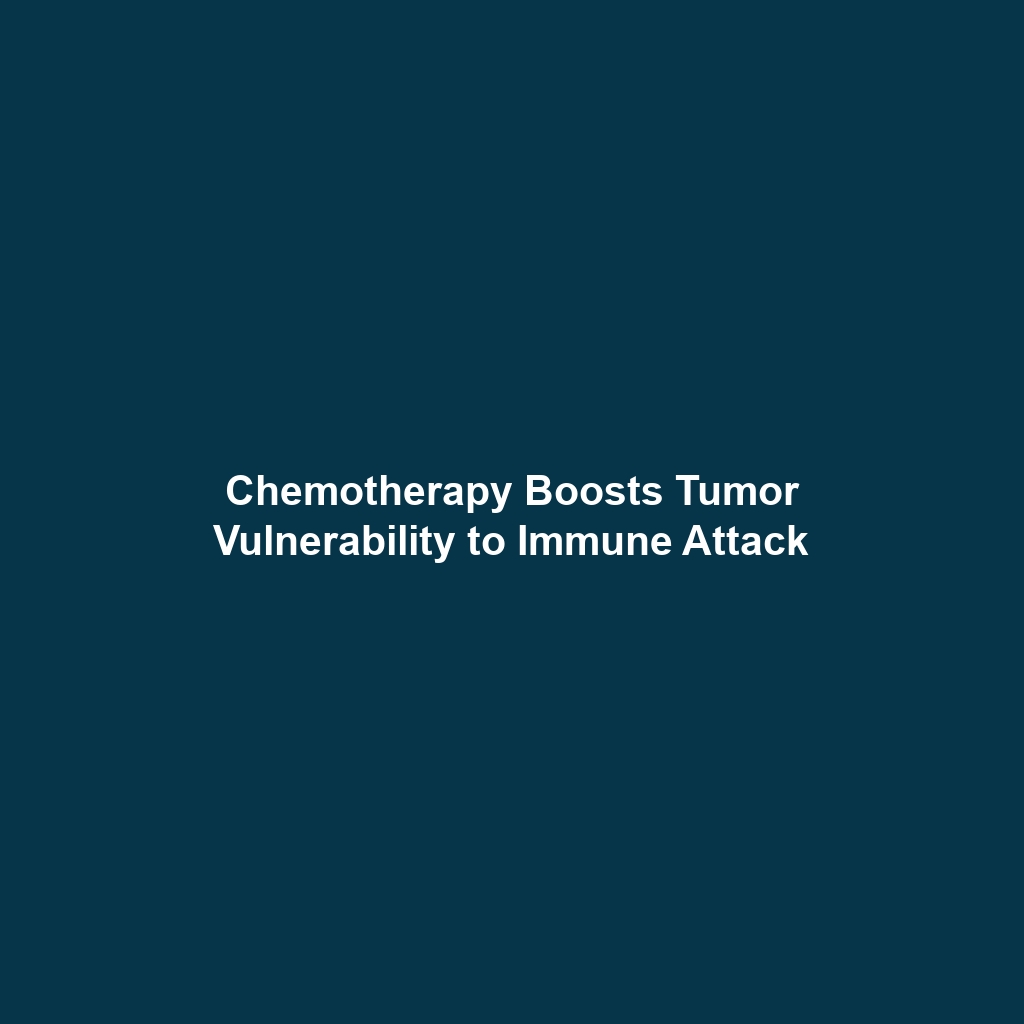<>
How Immune Checkpoints are Manipulated by Tumors to Prevent T Cell Activation
Introduction: The interaction between tumors and the immune system plays a crucial role in cancer progression and the development of effective treatments. Tumors have evolved sophisticated mechanisms to evade immune responses, one of which involves the manipulation of immune checkpoints. Understanding how immune checkpoints are manipulated by tumors to prevent T cell activation is vital for advancing immunotherapy strategies. This article delves into the significance of this phenomenon within the field of Immunotherapy & Cancer, revealing insights that could pave the way for innovative treatment options.
Key Concepts
To fully grasp how tumors evade the immune response, it is essential to understand the concept of immune checkpoints. Immune checkpoints are regulatory pathways that maintain self-tolerance and prevent excessive immune responses. Key checkpoints include:
- PD-1/PD-L1 Interaction: Tumors can express the protein PD-L1, which binds to the PD-1 receptor on T cells, inhibiting their activation.
- CTLA-4 Pathway: Tumors may exploit CTLA-4 to inhibit T cell activation, thereby reducing anti-tumor immunity.
- Tumor Microenvironment: Tumors can modulate their surrounding environment to produce immunosuppressive factors that silence T cell responses.
These mechanisms illustrate the complexities involved in the relationship between tumors and immune evasion, highlighting the challenges faced in the realm of Immunotherapy & Cancer.
Applications and Real-World Uses
Understanding how immune checkpoints are manipulated by tumors has led to significant advancements in cancer therapies, particularly in the form of checkpoint inhibitors. Examples of how this knowledge is applied include:
- Monoclonal Antibodies: Drugs like pembrolizumab (Keytruda) and nivolumab (Opdivo) target PD-1, enhancing T cell activation against cancer cells.
- Combination Therapies: Combining immune checkpoint inhibitors with other treatments, such as chemotherapy or radiation, can improve overall outcomes.
- Biomarker Development: Identifying patients most likely to benefit from checkpoint inhibition through the study of tumor biomarkers.
These applications exemplify the transformative impact of understanding immune checkpoint manipulation on the landscape of Immunotherapy & Cancer.
Current Challenges
Despite significant progress, the study and application of how immune checkpoints are manipulated by tumors face several challenges:
- Resistance Mechanisms: Some tumors may develop resistance to checkpoint inhibitors over time, limiting their effectiveness.
- Patient Variability: Individual responses to immunotherapy can vary significantly, complicating treatment approaches.
- Side Effects: Immune-related adverse effects can arise from unleashing T cell activity, leading to autoimmunity.
These issues highlight the need for ongoing research into the challenges of immune checkpoint manipulation and effective immunotherapy application.
Future Research and Innovations
The future of immunotherapy hinges on continued exploration of immune checkpoints and tumor dynamics. Upcoming research includes:
- Next-Generation Checkpoint Inhibitors: Development of new agents that target multiple checkpoints simultaneously.
- Personalized Immunotherapy: Tailoring treatments based on individual tumor profiles and immune response characteristics.
- Novel Combinations: Investigating synergistic effects of combining checkpoint inhibitors with emerging therapies like CAR-T cells.
These innovations could revolutionize the efficacy of immunotherapy for cancer treatment in the coming years.
Conclusion
Understanding how immune checkpoints are manipulated by tumors to prevent T cell activation is critical to advancing the field of Immunotherapy & Cancer. Continued research and innovation are necessary to overcome current challenges and improve treatment outcomes for patients. For further information on immunotherapy strategies and advancements, explore our related articles on [checkpoint inhibitors](#) and [tumor immunology](#).

